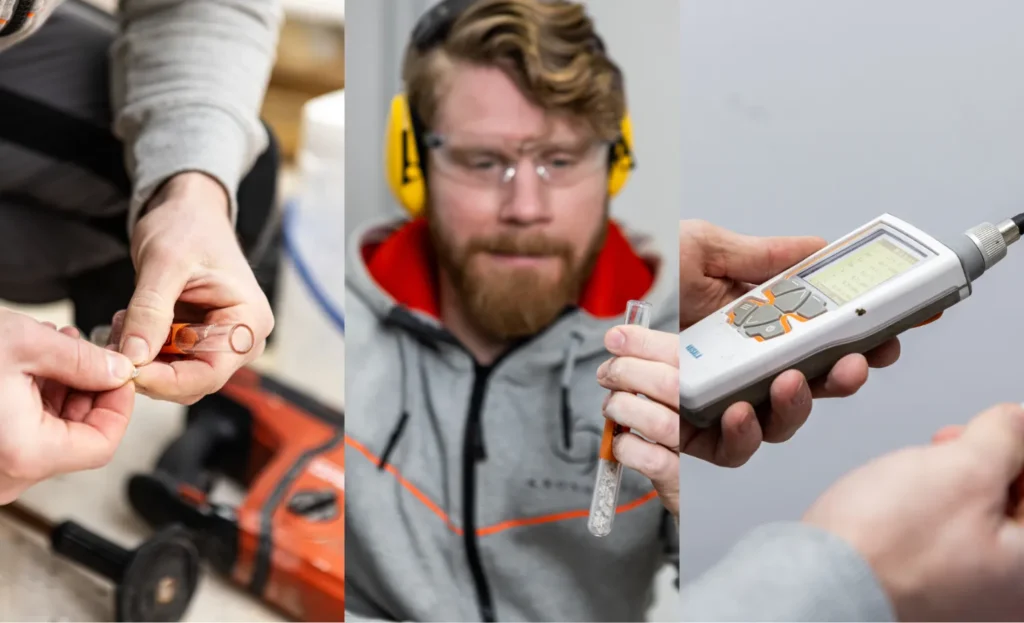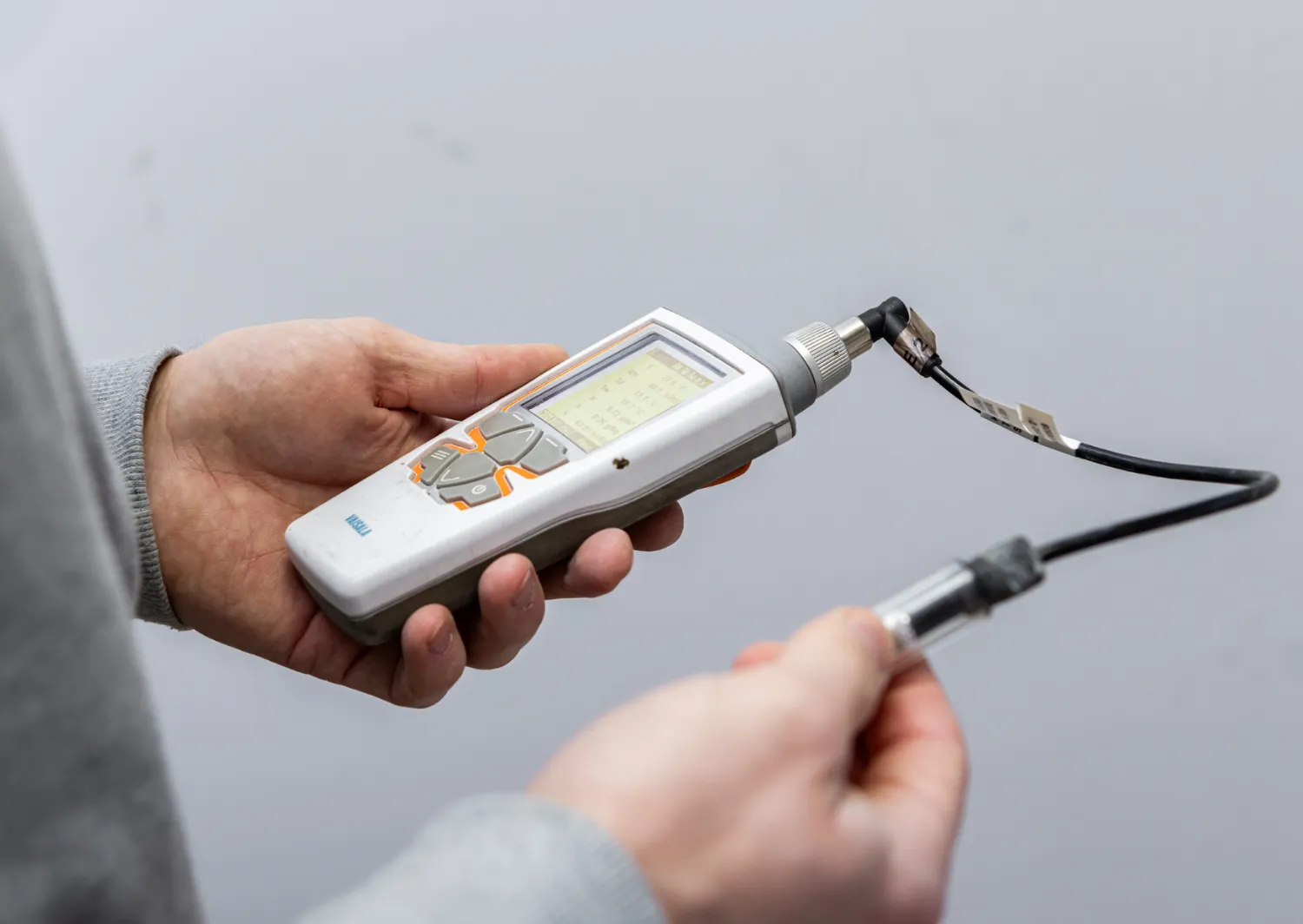Today, Detecta carried out an indoor climate assessment in an office after an employee experienced discomfort linked to indoor air quality. Symptoms can include a stuffy nose, breathing difficulties, and headaches, but also skin irritation and other issues. A healthy indoor climate is essential!
Simon Kula from Detecta was on-site to perform several measurements and inspections. In the conference room, logging equipment was installed to continuously measure air pressure, humidity, temperature, and carbon dioxide levels. Differences in air pressure can influence how air moves within a building – negative pressure can draw in polluted air from the building’s structures, while positive pressure can push warm indoor air into the structures, potentially leading to moisture damage and mold growth over time.

During an investigation, several potential causes for poor indoor climate may be identified:
- Chemical Emissions: Chemical reactions can occur between adhesives and damp concrete, releasing volatile organic compounds (VOCs). Poor ventilation exacerbates this issue by increasing the concentration of these emissions.
- Mold and Moisture Damage: Mold damage is often a result of moisture-related issues. When humidity exceeds 75% RH and the temperature is above 20°C, there is a risk of microbial growth. For microbes to thrive, three elements are required: moisture, warmth, and a nutrient source.
- Insulation Fibers: Mineral and fiberglass insulation is common in most buildings. Fibers from the insulation can become airborne and enter the indoor air through leaks in the structure, negatively affecting the indoor climate.
- Unpleasant Odors: Abnormal odors may be detected. Samples are taken for further analysis to determine their source. According to recent regulations, odor problems are classified as indoor climate issues requiring action.
- Roof Leaks: Potential roof leaks are investigated as they can cause discoloration, moisture damage, and subsequent indoor climate issues.
To gain a more comprehensive understanding of how the indoor climate affects the work environment in this office, a section of the wall in one of the office rooms was cut open. Material samples were taken from the structures and will be sent to a laboratory to analyze for mold growth. This process takes over two weeks as microbes are cultured on different growth media.
A good indoor climate is essential for health and well-being. Detecta works to identify and address problems to improve the work environment.
Detecta currently employs seven engineers specializing in indoor climate investigations. The staff has expertise in various areas, and two of them have completed RTA training (competence for health-oriented construction), which is a requirement when investigating indoor climates in public buildings.

